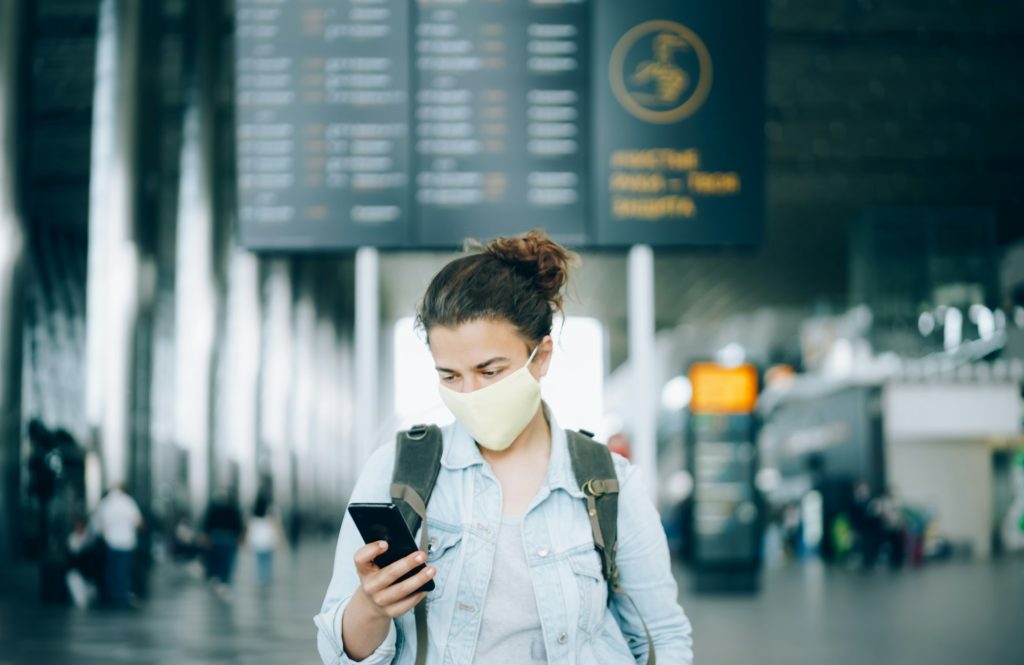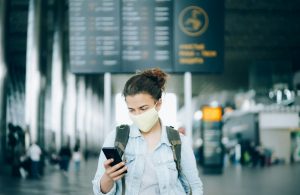2020 was not a good year for most people all over the world, but 2021 shows promise of being better. With the rollout of vaccines underway worldwide, some countries have decided to open up their borders to welcome tourists once again. Finally, you have an opportunity to explore different cultures—but not without regulations and restrictions.
Travelling in the New Normal
Even before the global pandemic, travelling outside Canada exposes you to a variety of vaccine-preventable illnesses. To reduce your risks to health conditions, you must consult a healthcare provider to determine your required vaccinations for travel, aside from the COVID-19 vaccine.
However, although getting vaccinated reduces your risk of getting and spreading the COVID-19 virus, there is still a chance that you may contract it while travelling. Keep in mind that the world still hasn’t gone back to normal, which is why you must practice the necessary safety precautions when travelling.
It’s still possible to get infected with COVID-19 while vaccinated, which is why you must learn about the symptoms and isolate yourself as soon as you suspect that you’ve contracted the virus.
Monitoring your health while travelling is crucial, but one thing to note is that just because you have some virus symptoms doesn’t automatically mean that you’ve contracted COVID-19. In some cases, loose, watery bowel movements may just be the traveller’s diarrhea and not the virus.
Is It COVID-19 or Traveler’s Diarrhea?
Since diarrhea is among the symptoms of COVID-19, it’s understandable for anyone to assume that they have the virus. While it’s good to be cautious while travelling, especially during this time, it’s also essential to learn how to differentiate other illnesses from the virus to receive the necessary treatment.
Traveller’s diarrhea refers to bowel movements that are loose and watery, which occur within ten days of arriving at a palace with poor public hygiene. As one of the most common illnesses in travellers, it would be highly likely to meet another person who suffers from the same condition as you.
What Are the Symptoms of Traveler’s Diarrhea?
The primary symptom of traveller’s diarrhea is loose stool, but other symptoms may also include the following, which typically last less than a week:
– Blood in the stool
– Vomiting
– Bloating
– Feeling tired
– Fever
– Nausea
To confirm if you do have traveller’s diarrhea, a healthcare provider will ask about your health history and symptoms, as well as your recent travel. You may also be asked to take a series of tests, such as stool culture, to check for bacteria, viruses and parasites.
How Do I Treat Traveller’s Diarrhea?
Traveller’s diarrhea often goes away within a few days. To treat this condition, you’ll need to replenish the fluid lost by frequent bowel movements. Drinking plenty of fluids by drinking water and having clear broth, flat soda, or juice is usually enough to relieve the symptoms, but you may be required to take antibiotics or other medicines if they don’t work.
Conclusion
These days, a passport and visa aren’t the only things you need to be allowed to move in and out of a country. To travel in the new normal, you would either need an immigration vaccine or travel vaccination to be allowed to leave and enter different places. As long as you take care of your health and stay informed about the various conditions to protect yourself from, you’re sure to have a great experience travelling in the new normal!
If you have any questions or concerns about travel vaccinations in Edmonton or other health-related worries, just visit your friendly neighbourhood pharmacy, Heritage IDA Pharmacy! We are dedicated to providing up-to-date advice and health care knowledge coupled with personalized care. Connect with us to learn more!




